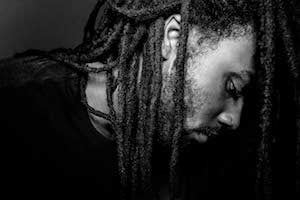LENS
Making a Case
Law students take on civil and human rights issues
 PHOTO: Shutterstock
PHOTO: ShutterstockLaw school students successfully argued for the rights of a man in prison who sought to preserve his dreadlocks in keeping with his religious practices.
Students at Case Western Reserve's School of Law recently tackled provocative and timely legal issues, arguing for the religious rights of a man in prison and seeking surveillance records after federal agencies monitored Movement for Black Lives activists.
Students at the Milton A. Kramer Law Clinic Center's Civil Rights & Human Rights Clinic and their professor, Avidan Cover, JD, describe the cases and their experiences.
SUPPORTING A PRISONER'S RELIGIOUS RIGHTS
When Trumbull Correctional Institute (TCI) in Ohio sought to cut prisoner Deon S. Glenn's dreadlocks, he reached out to the law school, which was working on a similar case for another TCI inmate.
Glenn is a member of the Rastafarian religion, which prohibits hair-cutting and requires dreadlocks. But Ohio prisons don't allow inmates to wear dreadlocks.
Glenn's case was expedited because a date for his haircut loomed.
A federal judge agreed with the students' arguments that cutting Glenn's dreadlocks violated a law protecting prisoners' religious rights. The ruling only applies to Glenn, who is serving a potential life sentence for murder and attempted murder. But Cover said the decision provided important recognition of federal protections even for the "least popular people," such as inmates, and that Ohio's prison officials are reviewing their policies as a result.
"Working on this case was ultimately the high note law school ended on, because even though it had been overwhelming at times, look at what we were able to do," said Lindsay Cook, JD (LAW '18).
TEAMING UP FOR COLOR OF CHANGE
When reports revealed that government agencies were monitoring protests and activists related to the Movement for Black Lives, several organizations—as well as students at the law clinic— teamed up to file a federal Freedom of Information Act (FOIA) request in 2016 to obtain relevant documents.
The Center for Constitutional Rights (CCR) in New York City took the lead, filing the request with the Federal Bureau of Investigation and U.S. Department of Homeland Security on behalf of racial-justice organization Color of Change—and contacted Cover, who had a previous connection to the center. The agencies did provide thousands of pages of documents—but only after the students and CCR sued to get them in federal court.
Cover said the released documents revealed that the agencies inaccurately painted some protestors as potentially violent extremists—and used that premise to justify otherwise impermissible monitoring. The documents also included several emails referencing something called the "Race Paper." But information about the paper was blacked out.
The law students and CCR next sought a court order to obtain any versions of the Race Paper, with students assisting in all areas of the case, including research and writing and editing briefs.
The federal agencies argued that the documents should be exempt from a FOIA release because they were drafts of a proposed intelligence assessment and never finalized.
In May, a U.S. District Court judge in New York privately reviewed drafts of the Race Paper and ruled the organizations weren't entitled to them.
Despite the outcome, Krithika Rajkumar, JD (CWR '15, LAW '18), who as a student traveled to New York City to meet with colleagues and sit with lawyers arguing the case in court, said the experience taught her about effective teamwork. "There were about eight people working on our briefs [in Cleveland and New York]," she said, "so we had to make sure we were taking everyone's opinions into consideration while still being efficient."
Cover said the case also provided a public benefit. "The students' contributions were vital to at least partly lifting the government's veil of secrecy over surveillance," he said.





